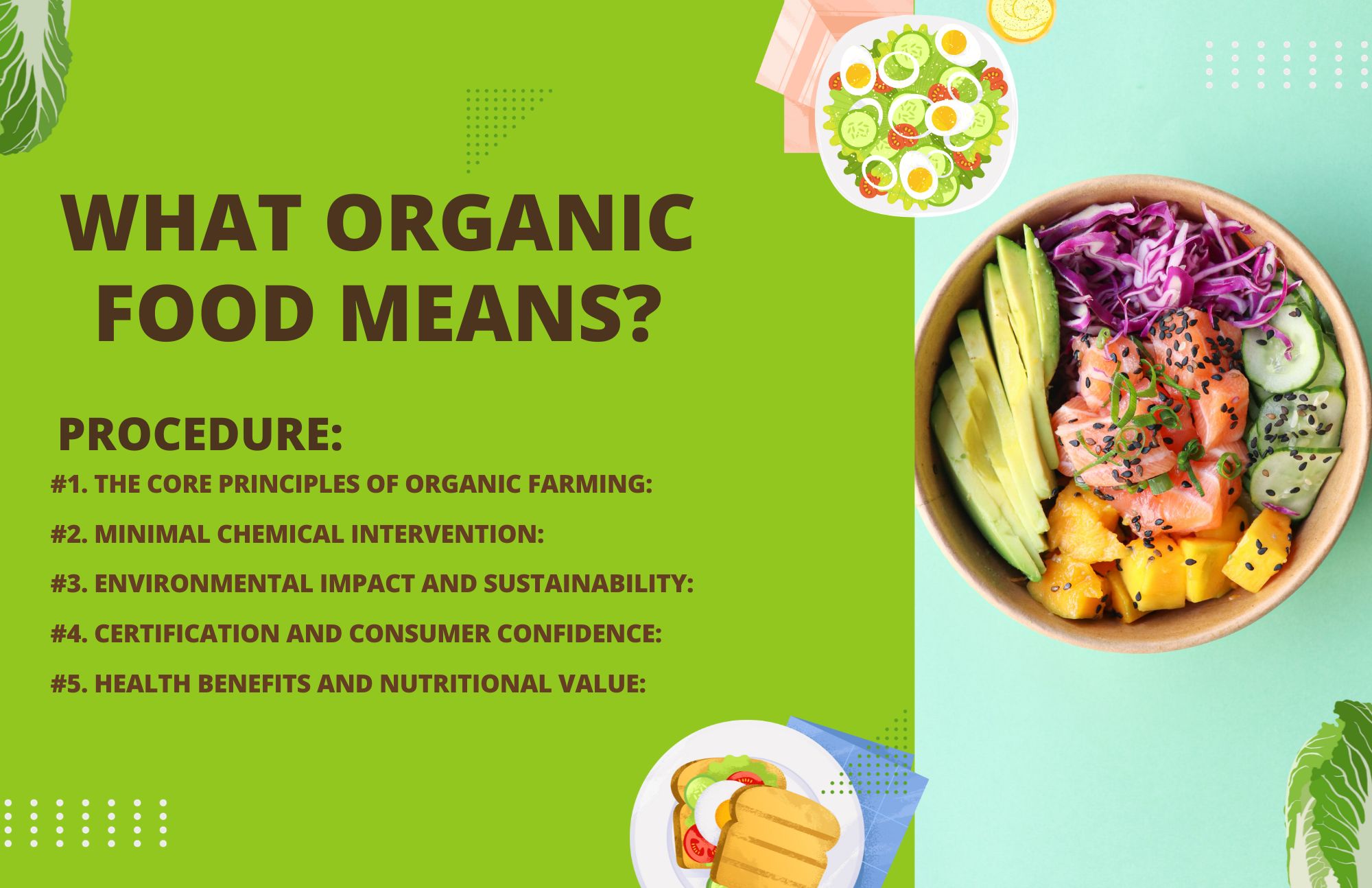
Establishment of Organic Food:
The label “organic” has gained popularity in the food industry in a world where people are becoming more health-conscious. The appeal of a more eco-friendly and healthful choice is drawing in more and more customers. However, what exactly does “organic food” mean? Together, we will examine the meaning of organic farming and peel back the layers of this phrase.
#1. The Core Principles of Organic Farming:
Fundamentally, soil health and biodiversity are given top priority in organic farming. It stays away from genetically modified organisms (GMOs), synthetic pesticides, and herbicides. Rather, in order to preserve a healthy and sustainable ecosystem, organic farmers rely on organic techniques including crop rotation, composting, and the creation of homes for beneficial insects. This method seeks to protect the soil’s long-term health in addition to producing nutritious food.
#2. Minimal Chemical Intervention:
Organic food stands out due in part to its minimum usage of artificial chemicals. In order to increase yields, conventional farming frequently uses a lot of fertilizer and pesticides. On the other hand, organic farmers use natural alternatives to improve soil fertility and manage pests. In addition to improving consumer health, this decrease in chemical intervention improves the environment as a whole by lessening the negative impacts of agrochemical runoff.
#3. Environmental Impact and Sustainability:
The benefits of organic farming extend to the health of the planet as well as individual health. The techniques used in organic farming are intended to encourage sustainability. Organic farming lowers the chance of contaminating the land and water by eschewing synthetic inputs, which eventually promotes a more robust and balanced ecosystem. Crop rotation and varied plantings are also important because they preserve a healthy soil structure and stop erosion and degradation.
#4. Certification and Consumer Confidence:
There are certification requirements in place in several countries to guarantee the integrity of organic products. Usually, these standards cover recommendations for additive use, insect management, and soil quality. A product has satisfied these strict requirements when it bears the organic certification label. In addition to giving customers peace of mind about the quality of their food, this certification encourages farmers to use environmentally responsible and sustainable farming methods.
#5. Health Benefits and Nutritional Value:
Studies indicate that there might be some health advantages associated with eating organic food as opposed to conventionally grown food. Studies have indicated that organic produce frequently has higher levels of some nutrients and antioxidants, though opinions on the exact scope of these benefits are still up for debate. Furthermore, the lack of artificial chemicals in organic farming might lower the possibility of pesticide residues in food, which could have positive health effects.
Summary:
Organic food is essentially a commitment to a comprehensive and sustainable approach to agriculture, not just a label on a product. It’s an agreement to improve soil health, safeguard biodiversity, and advance consumer and environmental health. Even though choosing organic food may cost a little more, many people believe it is well worth the investment for their health and the health of the planet. Understanding the fundamentals and advantages of organic farming is essential as we continue to navigate the complex world of food options. This will enable us to make decisions that are in line with our values and help create a healthier, more sustainable future. Sustainable farming practices are highlighted by organic food, which is grown without the use of artificial pesticides or fertilizers. It encourages biodiversity preservation, animal welfare, and environmental conservation. Organic farming promotes nutrient-rich produce by avoiding genetically modified organisms (GMOs) and placing a high priority on soil health. Selecting organic food promotes a sustainable agricultural strategy that is good for the environment and consumer health.